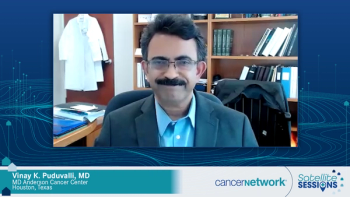
Panelists discuss how the updated WHO classification system for gliomas has impacted their treatment approaches, while also addressing the practical difficulties of integrating these changes into routine clinical care.

Your AI-Trained Oncology Knowledge Connection!


Panelists discuss how the updated WHO classification system for gliomas has impacted their treatment approaches, while also addressing the practical difficulties of integrating these changes into routine clinical care.

Panelists discuss how they tailor treatment strategies for oligodendrogliomas and Grade 2 gliomas based on key clinical and molecular markers, with particular attention to insights from the CODEL trial and RTOG 9802 study.

Panelists discuss how they determine the optimal timing of temozolomide administration - concurrent or adjuvant - for WHO grade 3 astrocytomas lacking 1p/19q codeletion, drawing on evidence from the CATNON trial to inform their decision-making process.

Panelists discuss how IDH inhibitors such as ivosidenib could potentially reshape the treatment approach for low-grade gliomas, while also exploring what further clinical evidence would be necessary to confidently integrate these novel agents into standard care protocols.

Panelists discuss how the INDIGO trial results and vorasidenib's approval could shift treatment paradigms for IDH-mutant low-grade gliomas, weighing various clinical, molecular, and patient-specific factors when considering the integration of this novel targeted therapy into individualized treatment plans.

Panelists discuss how unmet needs in glioma treatment persist despite recent advances, highlighting key areas for future research and development to improve outcomes and quality of life for patients with gliomas.